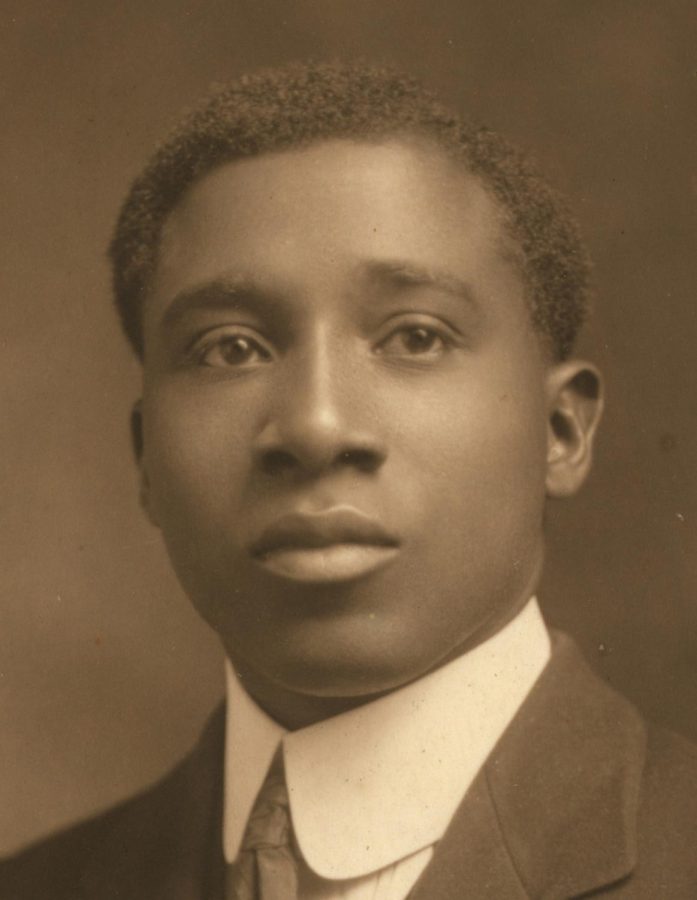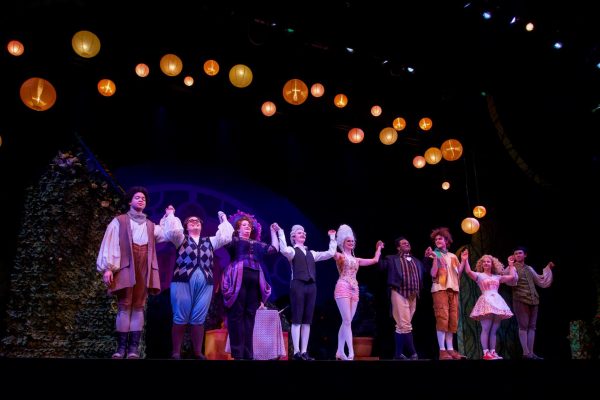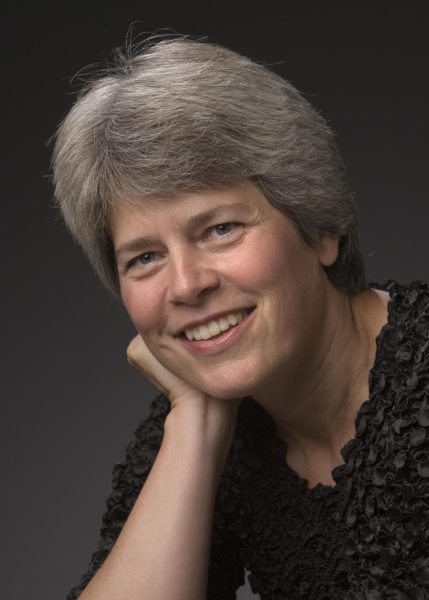Conservatory Students Form R. Nathaniel Dett Music Society
The R. Nathaniel Dett Music Society is a newly formed group dedicated to educating Oberlin College and Conservatory students, as well as community members, on the accurate historical performance practices of Black classical musicians in the early to mid-20th century. This week, rehearsals began for a short inaugural concert honoring the late Dolores White, OC ’54, that the Society hopes to present in May.
Nathaniel Dett, OC 1908, the Society’s namesake, was the first Black student to graduate from Oberlin Conservatory with a double major in Piano Performance and Composition. Dett arranged a number of Black concert spirituals and worked as a choral conductor at the Hampton Institute, whose performance tradition inspires the pedagogy of the Society.
Conservatory second-year Daesean Lawson founded the Society only a couple of weeks ago, though he has been passionate about Black choral pedagogues like Dett and the musicology of Black music institutions since high school.
“I felt that there was no proper recognition of Black classical literature on campus,” Lawson said. “I also felt the performance of this music was not what it should be, by both student groups and academic groups led by professors. The production of this music I found insulting, and the steadfastness of people who are in my line of work and relationship with the Negro folk idiom is to correct all false doctrine that may be spread in relation to the performance of this music. There is a style — how to do it — and that style should be respected.”
He also expressed that this lack of historical accuracy in performance extends beyond Oberlin’s campus — that it is a broader collegiate issue.
“I believe that in common practice today, in both the predominantly white institution and the Historically Black College and University, the attention to performance styles and pedagogues of this period have fallen,” Lawson said. “I believe that it is of the utmost importance that these traditions from this time are not forgotten and that they are preserved and they are recognized as full bodied traditions and period performance. Whether it be choral literature, vocal solo literature, or instrumental literature, the emphasis is on the research and the most historically accurate performance.”
Given Lawson’s concerns, the purpose of the Society is to provide an educational resource for Oberlin students, both in the College and Conservatory, and community members of all racial identities who want to perform Black classical music in the most historically accurate way.
“We hope to offer accredited courses, ExCo courses, in the spring semester of the upcoming year,” Lawson said. “We hope to get the Society accredited as well so that there is a strong impact on the education of this music, because that is what the purpose of this group is.”
In addition to the Society choir and ExCo, the Society plans to sponsor lectures and provide private coachings for students working on a piece of Black musical literature, whether instrumental or vocal.
“They can bring their spiritual or their Negro arts song or their character piece to us, and we can discuss some of the stylistic interpretations unique to that period,” Lawson said. “If you are interested in the pedagogy behind that piece, we can explain the historical thought processes of how it may have been done. The way one breathes is taught differently in the Negro practice. The diction that one uses [and] the idiomatic phrasing is different.”
The Society had its first choir rehearsal Tuesday night in Fairchild Chapel. Students and community members of all backgrounds were encouraged to come, as long as they came with an open mind and willingness to learn. Double-degree second-year Tia Leung attended the rehearsal, where they worked on one of Dett’s spiritual arrangements in the style of the Hampton Singers.
“Learning about the style of conducting used to perform spirituals was a bit difficult to pick up at first, but once we got over the learning curve as an ensemble, we really did make beautiful music,” Leung said.
This reflection seems to epitomize Lawson’s aspiration for the future of the Society.
“What I hope to do with this Society is to make beautiful music, to educate, and to warm one’s heart with the sound, the ideas, and the philosophy of Negro folk music,” Lawson said. “It’s been something that has been very dear to me, so to then share it and make it so that one can go and do that same work by themselves is the greatest gift that this Society can produce.





